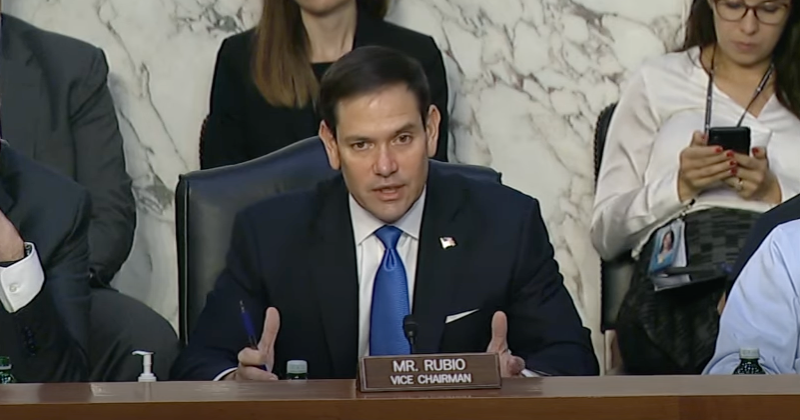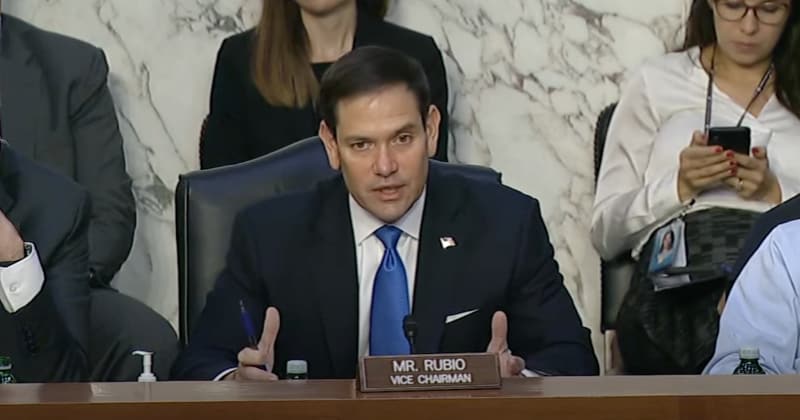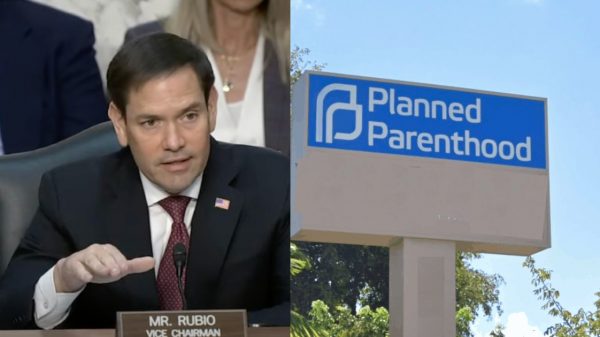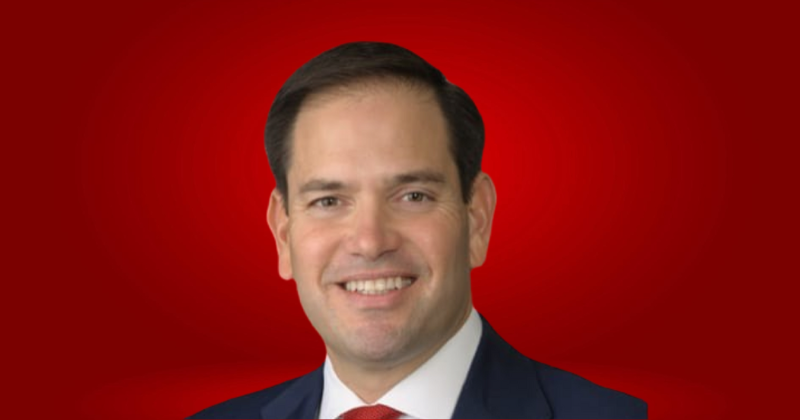This week, U.S. Sen. Marco Rubio, R-Fla., joined U.S. Sens. Thom Tillis, R-NC, and Tom Cotton, R-Ark., in sending a letter to U.S. Attorney General Merrick Garland regarding the U.S. Department of Justice’s (DOJ) draft policy statement on “Licensing Negotiations and Remedies for Standards-Essential Patents (SEP) Subject to Fair Reasonable and Non-Discriminatory Terms (F/RAND).”
The letter is below.
Dear Attorney General Garland:
America’s economic strength and national security depend on groundbreaking innovation in critical technologies. Integral to that process is robust private-sector research and development (R&D), as well as strong intellectual property rules to protect the fruits of those efforts. Your Department of Justice’s December 6, 2021, draft policy statement on Licensing Negotiations and Remedies for Standards-Essential Patents Subject to Voluntary F/RAND Commitments risks undermining American R&D investments and diminishing national competitiveness against the Chinese Communist Party (CCP) and other adversaries. As such, we urge the Department to withdraw the draft statement.
Today, our nation’s decades-running leadership in critical technologies faces a generation-defining challenge from the CCP. Through its Made in China 2025 industrial strategy, Beijing has made explicit its aspiration: to supplant U.S. innovation in technological development and compromise our national security by building, controlling, and contributing standards for the next generation of wireless and other technologies upon which Americans, as well as our military and intelligence systems, rely.
To achieve this, China and other competitors are heavily subsidizing innovation in critical technologies to gain the upper hand. Since 2015, China has outspent the U.S. by approximately $24 billion in wireless communications infrastructure, and China’s latest five-year economic plan calls for $400 billion in 5G-related investment. Industry experts have also warned that China may outpace the U.S. in artificial intelligence in several years, which will then be integrated into their military platforms as part of its Military-Civil Fusion, enabling it to overtake our decades-long technology advantage.
In contrast to China, the U.S. innovation ecosystem is premised on substantial private sector investments of capital and talent to research, develop, and commercialize new technologies. A revitalized, pro-American industrial policy will necessarily play a central role in this. However, any R&D investment, public or private, will be wasted absent strong guardrails to protect innovation, such as remedies for patent infringement – including standards-essential patents (SEP) subject to fair, reasonable, and nondiscriminatory licensing commitments. Redress for SEP infringement should be aligned with remedies otherwise available under U.S. law, including injunctive relief, and consistent with how disputes are resolved in other patent cases. Lacking these, American innovators would have little assurance that they would be able to recoup their investments, disincentivizing critical, long-term R&D in the first place. By weakening these remedies, your Department’s draft statement also sends a signal to infringers in China and elsewhere that they can simply steal critical American intellectual property with impunity.
We are concerned that this draft policy statement and the devastating policy outcomes that would follow came about through a rushed process without proper interagency coordination. The statement was issued in the name of the U.S. Department of Justice, U.S. Patent and Trademark Office (USPTO), and the National Institute of Standards and Technology (NIST). However, the nominees to lead the USPTO and NIST have not yet been confirmed, and neither has had the opportunity to participate in crafting the SEP policy. Undertaking such a significant policy change when neither the USPTO nor the NIST has confirmed leadership undermines the accountability and transparency of the process.
In the meantime, the Department should refrain from taking any steps that would make it more difficult for Americans to innovate amid fierce competition abroad. Further challenges to American innovation will jeopardize national security by disadvantaging and ceding U.S. technological leadership to China and other foreign competitors actively looking to displace the United States as the world leader in critical technologies.
We appreciate your attention to this important matter.














